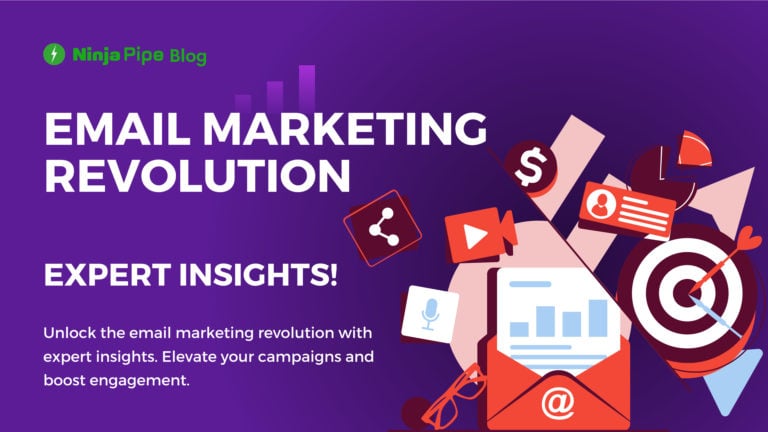Master the art of SEO with insights on both on-page and off-page techniques. Elevate your online visibility.
Introduction
In today’s digital landscape, having a strong online presence is crucial for businesses. Search engine optimization (SEO) plays a pivotal role in improving a website’s visibility and ranking in search engine results. SEO encompasses various strategies and techniques, including on-page and off-page optimization. In this article, we will delve into the world of on-page and off-page SEO, exploring their significance and understanding how they work together to boost website rankings.
What is SEO?
SEO stands for search engine optimization, which refers to the practice of optimizing a website to make it more visible and rank higher in search engine results. The primary objective of SEO is to attract organic (non-paid) traffic to a website, ultimately increasing its online visibility and driving relevant traffic.
Importance of SEO for websites
Before diving into the details of on-page and off-page SEO, it’s essential to understand why SEO is vital for websites. Search engines, such as Google, Bing, and Yahoo, serve as gatekeepers of the internet, helping users find the most relevant information based on their search queries. Websites that rank higher in search engine results have a higher chance of attracting organic traffic, generating leads, and increasing conversions. By implementing effective SEO strategies, businesses can gain a competitive edge and connect with their target audience.
On-Page SEO
On-page SEO refers to the optimization efforts made directly on a website to improve its search engine visibility. It involves optimizing various elements on individual web pages to make them more search engine and user-friendly.
Title tag optimization
The title tag is an HTML element that defines the title of a web page. It appears as the clickable headline in search engine results. Optimizing the title tag is crucial for on-page SEO as it helps search engines understand the content and relevance of the page.
Meta description optimization
The meta description is a concise summary of the web page’s content that appears beneath the title tag in search engine results. While it doesn’t directly impact rankings, a well-crafted meta description can entice users to click on the search result, increasing the click-through rate.
Heading tags optimization
Heading tags (H1, H2, H3, etc.) are HTML elements used to structure the content of a web page. These tags help search engines understand the hierarchical structure of the page and identify important sections. Optimizing heading tags with relevant keywords can improve the page’s visibility in search results.
URL structure optimization
An optimized URL structure plays a crucial role in on-page SEO. URLs should be concise, descriptive, and include relevant keywords. URLs that are easy to read and understand not only benefit search engines but also enhance the user experience.
Keyword optimization
Keywords are the foundation of SEO. Optimize your web pages by incorporating relevant keywords naturally into the content, title tag, headings, and meta description. However, be mindful of keyword stuffing, as it can harm your rankings. Focus on creating high-quality, informative content that provides value to users.
Content optimization
High-quality content is a vital aspect of on-page SEO. Search engines prioritize websites that deliver valuable and engaging content to users. Ensure your content is comprehensive, well-structured, and keyword-rich. Incorporate relevant headings, subheadings, paragraphs, and bullet points to enhance readability and user experience.
Image optimization
Images can contribute to the overall user experience and engagement on a web page. Optimize images by reducing file size without compromising quality, using descriptive file names, and adding alt tags. Alt tags provide alternative text when images cannot be displayed, making them accessible to search engines and users.
Internal linking
Internal linking involves linking to other pages within your website. It helps search engines discover new pages, understand the site structure, and establish the hierarchy of information. Internal links also provide additional information to users, improve navigation, and increase the time users spend on your website.
User experience optimization
User experience (UX) plays a vital role in on-page SEO. A positive user experience leads to better engagement, reduced bounce rates, and increased time spent on the site. Enhance UX by improving navigation, making the website mobile-friendly, and ensuring fast page load speeds.
Mobile optimization
With the increasing use of mobile devices, mobile optimization has become crucial. Mobile-friendly websites rank better in search engine results and provide a seamless user experience across different devices. Ensure your website is responsive, has a mobile-friendly design, and is optimized for mobile page speed.
Page load speed optimization
Page load speed directly affects user experience and search engine rankings. A slow-loading website can lead to high bounce rates and frustrated users. Optimize page load speed by compressing images, minifying CSS and JavaScript files, using caching techniques, and choosing a reliable hosting provider.
Off-Page SEO
Off-page SEO focuses on activities outside the website that influence its online visibility and reputation. It helps search engines understand how authoritative and trustworthy a website is based on external factors.
Backlinks
Backlinks are links from other websites that point to your site. They are a crucial ranking factor and serve as a vote of confidence for search engines. Acquiring high-quality and relevant backlinks from reputable sources can significantly impact your website’s search engine rankings.
Social media signals
Social media plays a pivotal role in off-page SEO. Engaging on social media platforms helps increase brand visibility, attract traffic, and generate social signals that indicate a website’s popularity and authority. Sharing valuable content and encouraging user engagement can amplify the impact of off-page SEO efforts.
Online directories
Listing your website on relevant online directories can improve your online presence and visibility. Ensure that you submit accurate and complete information to directories, improving your chances of getting discovered by potential customers.
Guest blogging
Guest blogging involves writing and publishing articles on other websites within your industry. It helps establish your expertise, build relationships, and gain exposure to new audiences. Guest blogging also provides an opportunity to include backlinks to your website, contributing to off-page SEO efforts.
Influencer marketing
Collaborating with influencers in your niche can boost brand awareness, expand your reach, and drive traffic to your website. When influencers mention or endorse your brand, it signals credibility and authority to search engines.
Brand mentions
Brand mentions, even without backlinks, can contribute to off-page SEO. Mentions of your brand or website across the internet establish brand awareness and indicate your authority. Monitoring brand mentions and engaging with audiences can enhance your online reputation and influence.
The relationship between on-page and off-page SEO
On-page and off-page SEO work hand in hand to improve search engine visibility and drive organic traffic. While on-page SEO focuses on optimizing elements within the website, off-page SEO focuses on
building relationships, acquiring backlinks, and improving online reputation. Integrating both strategies creates a comprehensive SEO approach that signals to search engines the relevance, authority, and trustworthiness of a website.
Creating a comprehensive SEO strategy
To achieve optimal SEO results, it is essential to develop an integrated SEO strategy that incorporates both on-page and off-page optimization. Consider your target audience, competitors, keyword research, content creation, and link-building efforts. Regularly monitor and adapt your strategy based on changes in search engine algorithms and industry trends.
Monitoring and measuring SEO success
Monitoring SEO performance is crucial to determine the effectiveness of your strategies and make data-driven decisions. Use tools like Google Analytics and Google Search Console to track website traffic, organic visibility, keyword rankings, and user behavior. Analyze the data regularly to identify areas for improvement and capitalize on opportunities.
Common on-page and off-page SEO mistakes to avoid
Keyword stuffing: Overusing keywords unnaturally can harm your website’s rankings. Focus on providing valuable content and using keywords naturally.
Ignoring mobile optimization: Mobile traffic continues to rise, and not optimizing for mobile devices can hinder your website’s visibility and user experience.
Neglecting user experience: Website usability, site speed, navigation, and content formatting are critical for SEO success. Prioritize user experience to increase engagement and rankings.
Neglecting link-building: Building high-quality backlinks is crucial for off-page SEO. Ignoring this aspect can limit the potential visibility and authority of your website.
Conclusion
In conclusion, on-page and off-page SEO are indispensable for boosting a website’s visibility, attracting organic traffic, and improving search engine rankings. On-page SEO focuses on optimizing elements within the website, while off-page SEO involves external strategies to build authority and reputation. Combining both approaches creates a powerful SEO strategy that enhances a website’s relevance, authority, and visibility. By implementing effective on-page and off-page optimization techniques, businesses can strengthen their online presence and better connect with their target audience.
FAQs
Q1: How long does it take to see results from SEO efforts?
A: The time it takes to see SEO results can vary depending on various factors, such as the competitiveness of your industry, the quality of your optimization efforts, and the crawling and indexing speed of search engines. Generally, it can take several weeks to months to see noticeable improvements in rankings and organic traffic.
Q2: Are backlinks the most crucial factor for SEO?
A: Backlinks play a significant role in SEO, but they aren’t the only factor to consider. While having high-quality backlinks from reputable sources is essential, search engines also analyze other factors like content relevance, user experience, website structure, and technical optimization.
Q3: How often should I update my website’s content for SEO purposes?
A: Updating your website’s content regularly is beneficial for SEO. It shows search engines that your website is active and provides fresh, valuable information to users. The frequency of content updates can depend on your industry and the nature of your website. Aim to provide regular updates and improvements to keep your content relevant and engaging.
Q4: Can social media activity impact SEO rankings?
A: While social media activity doesn’t have a direct impact on SEO rankings, it can indirectly influence them. Social shares can increase brand visibility, attract traffic, and potentially lead to backlinks and brand mentions, which are valuable off-page SEO factors.
Q5: Do paid advertisements affect organic search rankings?
A: Paid advertisements, such as Google Ads, do not directly affect organic search rankings. Organic search results are based on the relevance and authority of a webpage, while paid ads appear separately in search engine results pages. However, a well-executed paid advertising campaign can indirectly improve brand visibility and drive traffic to your website, potentially leading to more organic visibility and opportunities for backlinks.








Leave a Comment